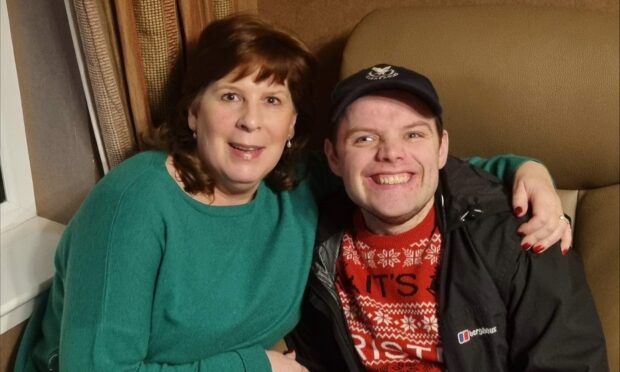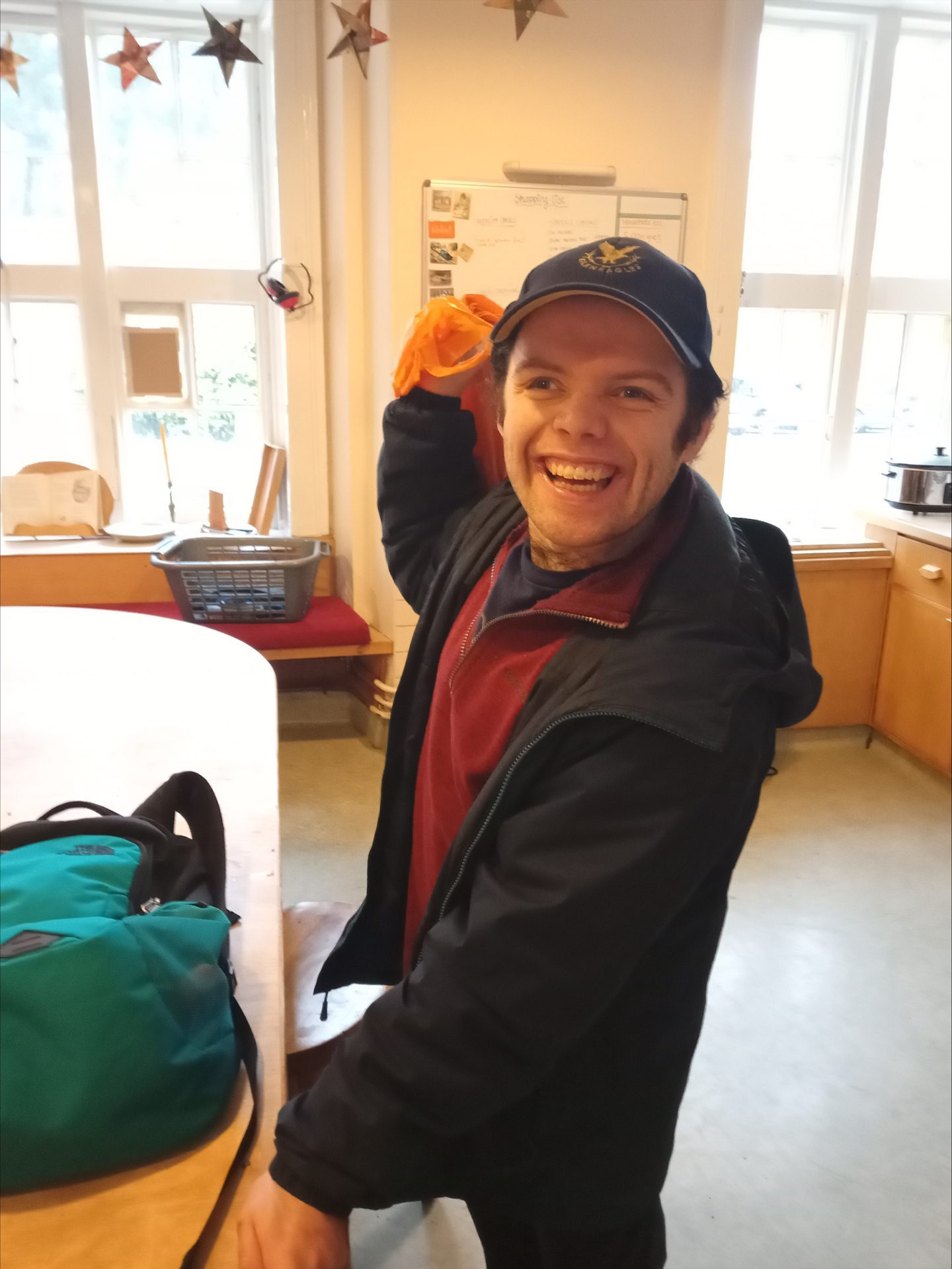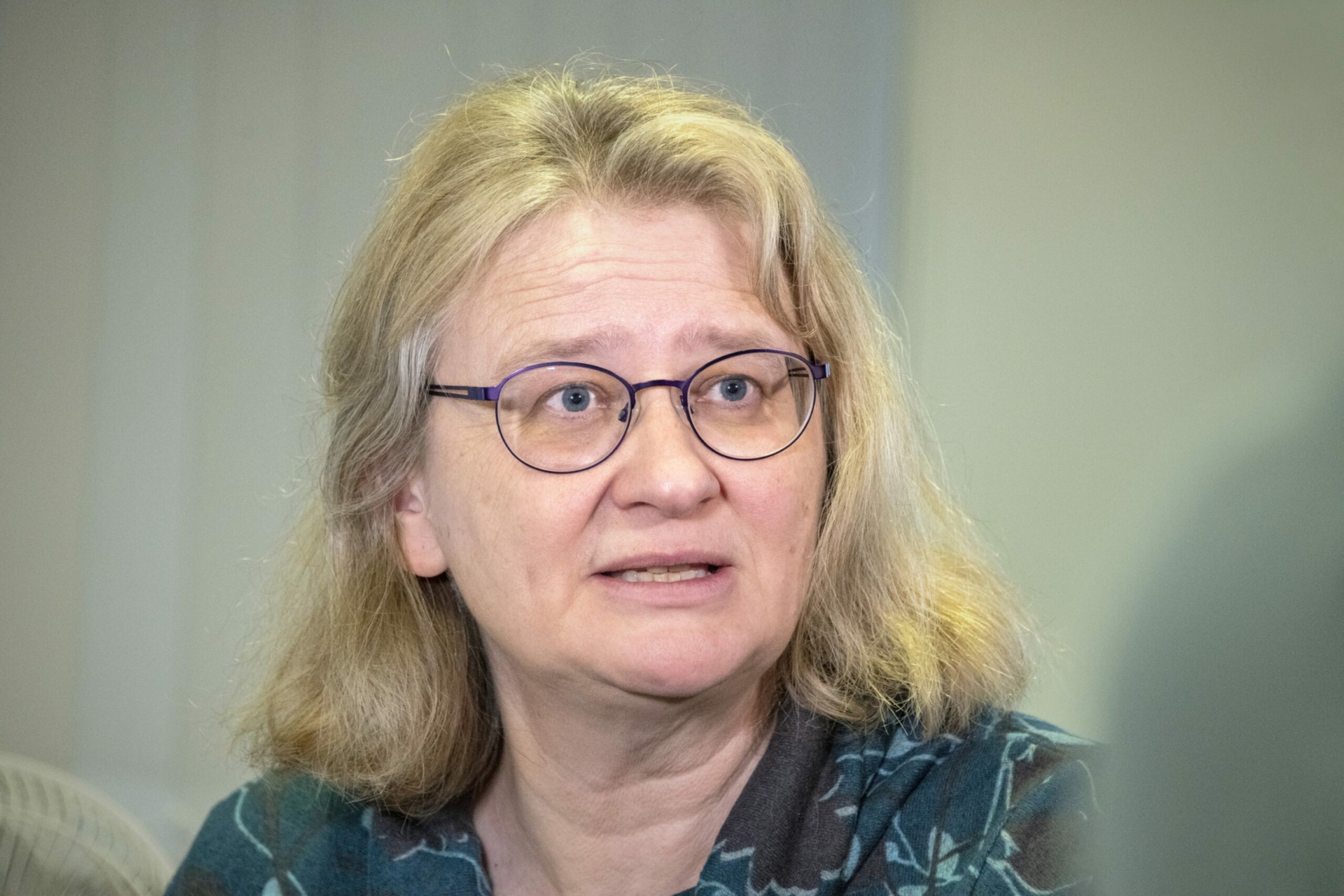An Aberdeen family have finally received answers to a decades-long medical mystery, helped by major leaps in DNA technology.
Linda Harris and her son Christopher have spent more than 20 years trying to understand more about his severe learning difficulty.
Experts at Aberdeen University have now been able to help them, alongside dozens more in similar situations, using a new form of genetic testing.
And it’s hoped a wider roll-out could transform the NHS in years to come, providing more diagnoses at a much cheaper cost.
Christopher’s story
Christopher, now 29, was told he had severe learning difficulties at a very young age, with delays in all areas of his development.
He’d been a very small baby and had difficulties feeding.
It was thought his condition was genetic but the technology wasn’t advanced enough to confirm this or say if it was inherited.
Every 12 months the “happy, smiley and sociable” youngster would return for more tests but they still couldn’t find the answer.
Then, a few years ago, he was invited to take part in a ground-breaking scientific study analysing his whole DNA, rather than a selection of specific genes as had been tried many times before.
This new approach to genetic testing has changed everything – finally giving the family the news they were waiting for.
It turned out Christopher has an issue with just one gene, KDM5C, affecting his nerves and muscles.
With this came a diagnosis – Claes-Jensen syndrome – and an immense feeling of relief following decades of uncertainty.
Linda said: “It was very difficult for people to understand how to relate to Christopher as even we didn’t know ourselves what was wrong.
“And I, like many mothers – albeit irrationally – always blamed myself, thinking I’d done something wrong during my pregnancy.
“I’d carried that guilt with me, so to get a diagnosis was just wonderful. I was so delighted – I was walking on air.”
How has the diagnosis helped?
The family looked more into the condition and its main signs: Moderate to severe learning difficulties, significant difficulties with speech, ADHD and an inability to sit still.
As they did, many of their precious memories took on so much extra context.
Having a diagnosis has meant they’re now able to speak to other families with experience of it, letting them share stories and offer support.
It also showed that Christopher’s condition had “happened randomly” – and that his parents weren’t carriers.
While they had a second son six years later, Linda says their lives could have been very different.
“If we’d known then, we’d have been able to make the decision to try for another baby sooner, with the possibility of having a third,” she added.
“It would have been really helpful at school, for his teachers and ourselves, if they’d known the characteristics of his syndrome.”
Around 100 families join one of the largest KDM5C Facebook groups every week, as the ability to diagnose it through genetic testing is still so new.
Linda said: “If more adults with learning difficulties were tested, and more were found to have Claes-Jensen syndrome, we’d be able to see if health issues arise later in life that we can look out for.”
In layman’s terms: How has genetic testing changed?
Genetic testing works by, essentially, reading someone’s DNA and looking for tiny differences previously linked to diseases.
Until recently it’s focused only on small numbers of these but there are more than 150,000 genes known to cause developmental difficulties.
A major programme, involving Aberdeen University and NHS Grampian among many others, has been taking a new approach looking at the full genome (set of DNA).
It has sequenced 1,000 genomes from Scottish residents with rare conditions and their family members, and submitted them to a flagship research project in England.
With a much wider pool of data to analyse, NHS Scotland scientists and doctors have been able to find new diagnoses in 23% of their cases.
Scotland could be ‘well placed’ to capitalise on tech
The study was led by Aberdeen University professor Zosia Miedzybrodzk.
She says it could have huge implications, as this new method of testing is cheaper and easier.
“The Scottish Government is using the study results to inform policy on what will be available in NHS Scotland in coming years,” she explained.
“If analysis of genome sequence improves as expected, and the costs fall, Scotland will be well placed to implement the technology.
“Having an undiagnosed genetic condition brings a huge amount of worry for those affected but it is our hope that diagnosis through genome sequencing can bring answers and improve the lives of patients and their families.”




Conversation